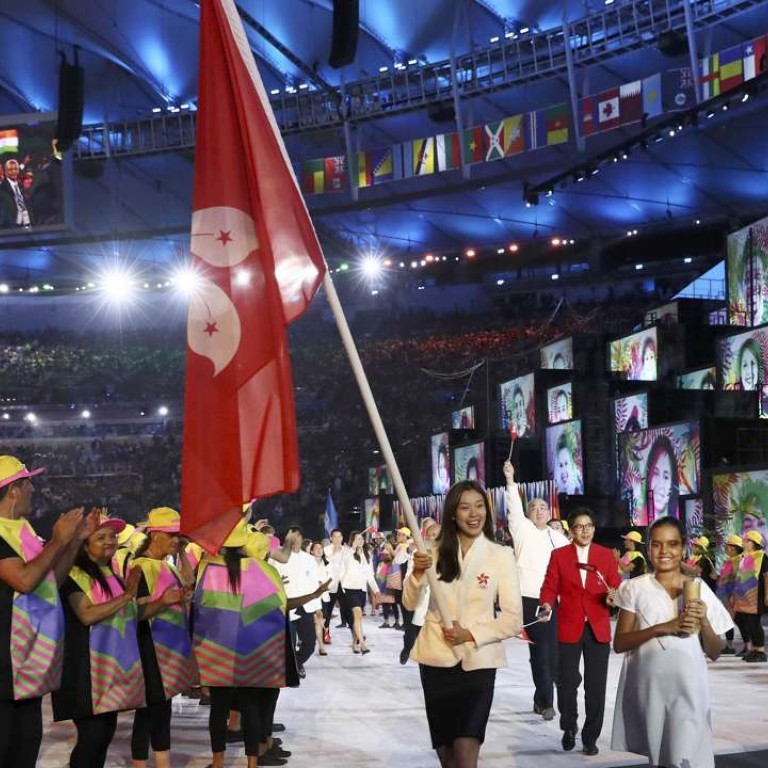
World class: Hong Kong’s best can cut it in the Olympics, but there are too few of them
With around 70 per cent of local athletes competing in their first Games in Rio, there is plenty of room for improvement in the team ahead of Tokyo 2020
The performances of Hong Kong’s Olympians at the Rio Games failed to garner a medal but that is nothing new.
Since Hong Kong started sending delegations to the Olympics in 1952, on only three occasions have they returned with a medal – 1996, 2004 and 2012. So, in that sense little has changed. What has changed, though, is the expectations of the Hong Kong public.
But those expectations must be tempered with a heavy dose of realism, for which there are two aspects. First, Hong Kong IS blessed with a handful of world-class athletes. Second, there are only a handful.
Hong Kong needs more world-class athletes if they are to consistently challenge for medals at events such as the Olympics, world championships and other international competitions.
Lee Lai-shan’s windsurfing gold medal in Atlanta in 1996 sparked mass celebration in Hong Kong as the ordinary folk started to give credence to sport as a pursuit.
WATCH: golden moments on Day 13 at the Rio Olympics
Eight years later, table tennis delivered a silver medal in the men’s doubles and cyclist Sarah Lee Wai-sze came home with a bronze at the 2012 London Games.
In the build-up to Rio, there was genuine excitement over the prospects of another medal with Lee leading the way in the women’s keirin and sprint events.
Badminton and table tennis were also given a chance. However, all hopes evaporated, with Lee falling in the keirin and losing in the quarter-finals of the sprint.
The badminton players exited the competition before the quarter-final stages while the table tennis men’s and women’s teams failed to reach the semis.
Hong Kong chef de mission Kenneth Fok Kai-kong said the 38 athletes taking part in the Rio Games were mostly youngsters who were competing in the Olympics for the first time, so their 2016 experiences will steel them for Tokyo in four years.

“One important thing to realise in this team is that, yes there are veterans such as [swimmer] Stephanie Au, who has been to three Olympics but the majority, I would say about 70 per cent, are taking part in their first Olympics,” said Fok.
“That shows one thing and it is that the junior squads are coming up. The question is how to get more juniors to reach elite level. A lot of youngsters train until 14 or 15 and then they stop because of studies or whatever.
‘Look beyond just medals’: Hong Kong Olympic chief Kenneth Fok defends athletes’ performance at Rio Games
“How do we make the prospect of being a professional athlete more appealing to these youngsters and their parents? This is the million-dollar question.”
Soon after the sprint competition in at the Olympic Velodrome, Lee and her coach Shen Jinkang lamented the lack of quality training partners available in Hong Kong.

Lee said she prefers to stay in Hong Kong to train but is forced to travel overseas, mostly to mainland China, to train with cyclists who can push her to the limit.
Shen said: “If there were more cyclists like Sarah, we would have a better chance in these competitions. Find me another young girl or boy who wants to put in the effort and sacrifices to become an elite cyclist.”
I’ll be back: passionate Sarah Lee says she will return to race in Tokyo 2020 – if she can still cut it
The performances of Hong Kong’s athletes in high-profile competitions such as the Olympics does have an effect. Fok revealed that the younger sister of men’s track cyclist Leung Chun-wing wants to give up her studies and pursue a career in the sport.
An encouraging move but she is from a sporting family. The key is to convince parents that sport can become a viable profession of their kids and offer a genuine career path.
“She has a good attitude,” said Fok. “She has been accepted to a few universities but wants to do something she is passionate about.

“And the cycling team benefits from a great support system and in her mind she wants to do this. How do we encourage more of these people? Youth is the key.”
Fok said the involvement of the corporate community is crucial.
“It’s not just about how much the government spends on the Hong Kong Sports Institute. Of course, government support is important but it’s also about commercial prospects,” he said.
Hong Kong’s last medal hope aiming to give mountain biking a boost with strong Rio showing
“If you look at Americans, they get little prize money but huge commercial prospects. Universities in America have a huge support system via scholarships. We are still trying this but it is not as universal, you cannot compare it to the American system.
“I think career planning for athletes is something that is worthwhile for us to go back and work out a solution.”

